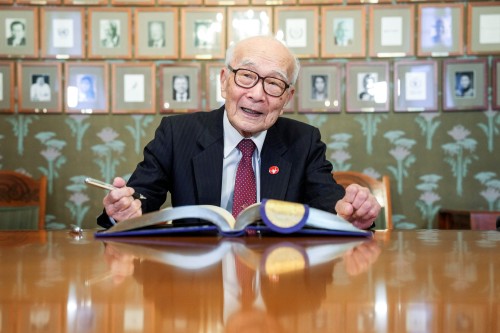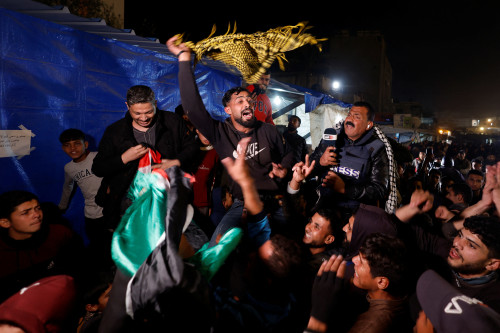By Nora Buli
OSLO (Reuters) – Russian President Vladimir Putin does not truly understand the destructive power of nuclear weapons, a 92-year-old survivor of the atomic bombing of Nagasaki said on Monday, on the eve of his Japanese survivors’ group receiving the Nobel Peace Prize.
Terumi Tanaka was referring to threats made by Putin and other senior Russian officials to use nuclear weapons if necessary to counter what they see as an aggressive and hostile West as the war in Ukraine grinds towards its third anniversary.
Last month Putin, whose country has the world’s largest nuclear arsenal, lowered the threshold for a nuclear strike in response to a broader range of conventional attacks.
This year’s Nobel Peace Prize was won by Nihon Hidankyo, a group of now elderly survivors of the U.S. atomic bombing of Hiroshima and Nagasaki in 1945, “for its efforts to achieve a world free of nuclear weapons”.
“I don’t think President Putin truly understands what nuclear weapons are for human beings,” Tanaka, a co-chair of the group, told a news conference when asked about the Russian leader’s rhetoric and his decision to lower the threshold.
“I don’t think he has even thought about this or understood this… What we need to do is to have him (Putin) really understand what these are.”
“We would like to say nuclear weapons are things which must never be used,” Tanaka said, adding that he had sent such a message to the Russian leader on behalf of Nihon Hidankyo.
On Tuesday, Tanaka will give the Nobel lecture on behalf of Nihon Hidankyo at a ceremony at Oslo City Hall. The group’s two other co-chairs, Shigemitsu Tanaka, 84, and Toshiyuki Mimaki, 82, will also attend.
CROWD-FUNDING
Nihon Hidankyo has sent a 30-member delegation of ‘hibakusha’ – survivors of the atomic bombings in Japan – and their children and grandchildren to the ceremony.
To afford the costly trip, which also required additional helpers and interpreters, Nihon Hidankyo led a crowd-funding campaign, hoping to raise 10 million yen ($66,278) – a target they easily exceeded as supporters pledged more than quadruple that amount.
However, the appeal also highlights the advanced age of the ‘hibakusha’ and the visible and invisible scars they still carry nearly 80 years after the explosions that ended World War Two.
An estimated 210,000 people died, either immediately or over time, as a result of the bombs dropped in 1945 on Hiroshima and Nagasaki, on Aug. 6 and Aug. 9, respectively. Today’s nuclear weapons are far more powerful than those used at that time.
As of March this year, there were still 106,825 atomic bomb survivors registered in Japan, data from the country’s health ministry showed, with an average age of 85.6 years.
($1 = 150.8800 yen)
(Reporting by Nora Buli in Oslo; Editing by Gwladys Fouche and Gareth Jones)





